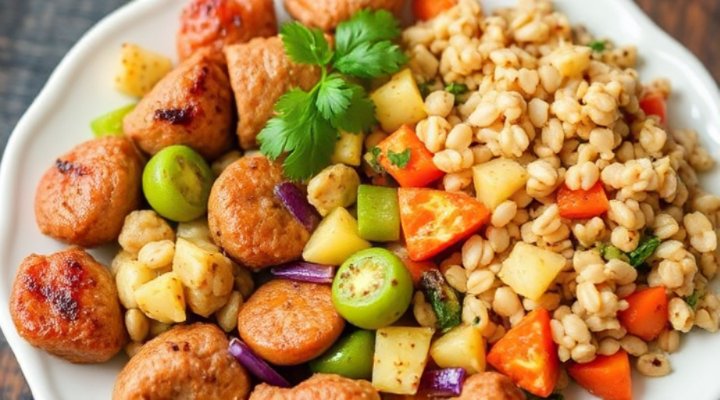Small breed dogs, such as Chihuahuas, Pomeranians, and Dachshunds, have unique dietary needs that differ from their larger counterparts. Their high metabolism and small stomachs require nutrient-dense food that provides energy without overloading their digestive system. In this guide, we’ll explore the best food for small breed dogs, ensuring your pet gets the nutrition they need to thrive.

Why Small Breed Dogs Need Special Food
Small breed dogs burn calories faster than larger dogs due to their higher metabolic rate. Consequently, they need food that’s rich in calories and nutrients to maintain their energy levels. Additionally, their tiny jaws and teeth require kibble that’s appropriately sized for easy chewing. For more insights on choosing the right food, check out our article on How to Choose the Best Food for Dogs.

Top Food Options for Small Breed Dogs
Dry Kibble
High-quality dry kibble is a popular choice for small breed dogs. Look for brands that offer small-sized kibble with a balanced mix of protein, fats, and carbohydrates. For example, Hill’s Science Diet for Small Dogs is specifically formulated to meet the needs of tiny breeds.
Wet Food
Wet food is another excellent option, especially for picky eaters or dogs with dental issues. It’s often more palatable and easier to digest. For recommendations, see our guide on Best Wet Dog Food for Small Breeds.

Nutritional Requirements
Small breed dogs need a diet rich in protein (at least 25-30%) to support their active lifestyle. Fats should make up about 15-20% of their diet to provide energy, while carbohydrates should be kept moderate. Always consult your veterinarian to tailor the diet to your dog’s specific needs. The AVMA offers great resources on dog nutrition.

Homemade Food Options
If you prefer preparing meals at home, ensure they’re balanced and meet your dog’s nutritional needs. Lean meats, vegetables, and grains can be combined to create a wholesome meal. However, avoid ingredients like onions, garlic, and chocolate, which are toxic to dogs.

Transitioning to New Food
Switching your dog’s food should be done gradually to avoid digestive upset. Start by mixing a small amount of the new food with the old, gradually increasing the proportion over a week. For a detailed guide, visit How to Transition Your Pet to New Food.
Conclusion
Choosing the best food for small breed dogs is crucial for their health and happiness. Whether you opt for dry kibble, wet food, or homemade meals, ensure it meets their unique nutritional needs. With the right diet, your small dog will enjoy a long, energetic, and healthy life.
Related Keywords: small breed dog food, best dog food for small dogs, nutrition for small dogs, healthy dog food, dog diet

